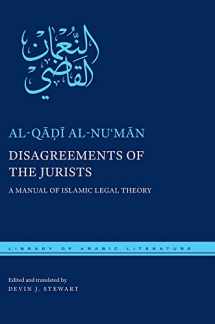
Disagreements of the Jurists: A Manual of Islamic Legal Theory (Library of Arabic Literature, 53)
Book details
Summary
Description
Al-Qadi al-Nu?man was the chief legal theorist and ideologue of the North African Fatimid dynasty in the tenth century. This translation makes available in English for the first time his major work on Islamic legal theory, which presents a legal model in support of the Fatimids’ principle of legitimate rule over the Islamic community. Composed as part of a grand project to establish the theoretical bases of the official Fatimid legal school, Disagreements of the Jurists expounds a distinctly Shi?i system of hermeneutics, which refutes the methods of legal interpretation adopted by Sunni jurists.
The work begins with a discussion of the historical causes of jurisprudential divergence in the first Islamic centuries, and goes on to address, point by point, the specific interpretive methods of Sunni legal theory, arguing that they are both illegitimate and ineffective. While its immediate mission is to pave the foundation of the legal Isma?ili tradition, the text also preserves several Islamic legal theoretical works no longer extant—including Ibn Dawud’s manual, al-Wusul ila ma?rifat al-usul—and thus throws light on a critical stage in the historical development of Islamic legal theory (usul al-fiqh) that would otherwise be lost to history.


We would LOVE it if you could help us and other readers by reviewing the book
Book review



